DVLA exposes latest online scams targeting drivers

Would you know how to spot a scam email?
The DVLA has released images of the latest online scams targeting motorists that could catch you out.
Recent scams range from texts or emails demanding you update your driving licence details online, to claims that your car tax remains “unpaid”.
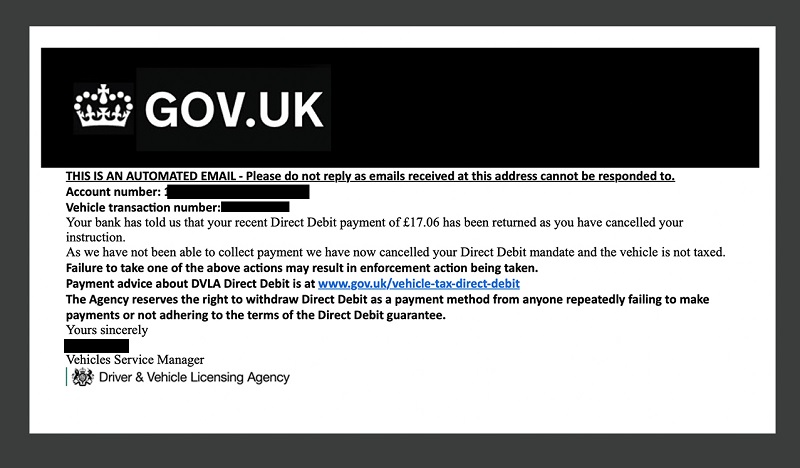
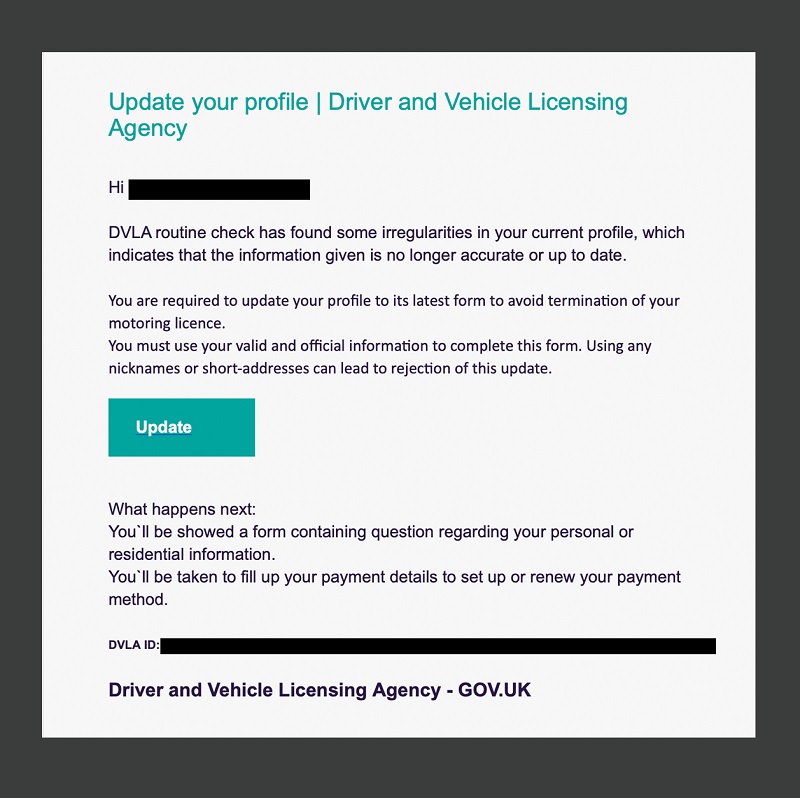
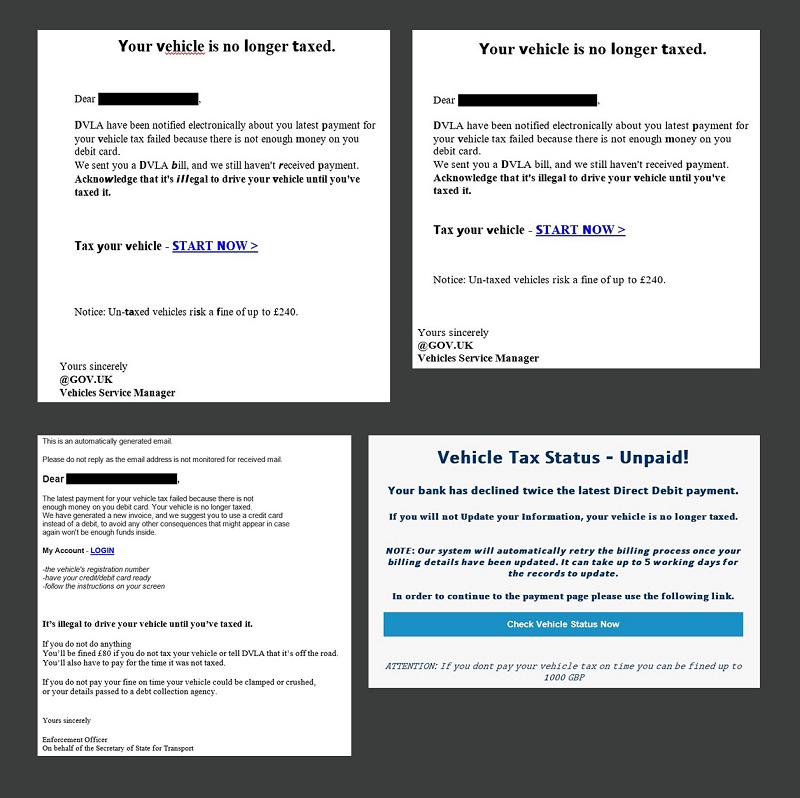
Scam emails
DVLA chiefs are warning that rising reports of fraud show scammers are becoming “more persistent” in their efforts to target motorists.
Public reports show the number of email scams detected between July and September 2020 reached 3,807 – an increase of 531% compared with the same period, last year when 603 were reported.
Meanwhile, fake text messages have declined slightly, with just 510 incidents between July and September, compared to 653 in 2019.
The first scam email image released by the DVLA claims that a recent “Direct Debit payment of £17.06 has been returned” because the agency was unable to collect payment.
A second message prompts drivers to update their current profile after “irregularities” were found.
You would then be directed to an “update” button to complete the form, risking your personal details being stolen.
The third scam is even more demanding – falsely claiming fines of up to £1,000 for failing to pay off a tax debt.
Phil Morgan, Head of Fraud Policy Investigation at DVLA said: “These more recent scams may at first seem legitimate, however they are designed to trick motorists into providing their personal details.
“We never ask for bank or credit card details via text message or email, so if you receive something like this, it’s a scam.
“Customers should report suspicious emails to the NCSC immediately. Anyone concerned they may have been a victim of fraud should contact the police via Action Fraud straight away.”
Tips for avoiding online fraud
As well as forwarding any suspicious emails and texts, DVLA has five top tips for motorists to stay safe online:
- Never share driving licence images and vehicle documents online
- Never share bank details or personal data online
- Avoid websites offering to connect to DVLA’s contact centre
- When looking for DVLA contact details, only use GOV.UK
Immediately contact the police via Action Fraud if you think you have been the victim of a scam.
Have you heard about the rise in online phishing scams during the pandemic? Find out more about COVID-related scams targeting motorists…

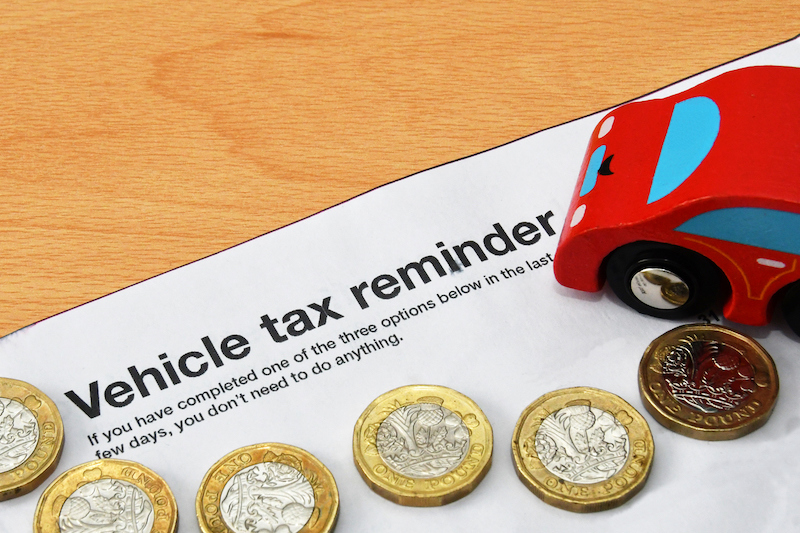
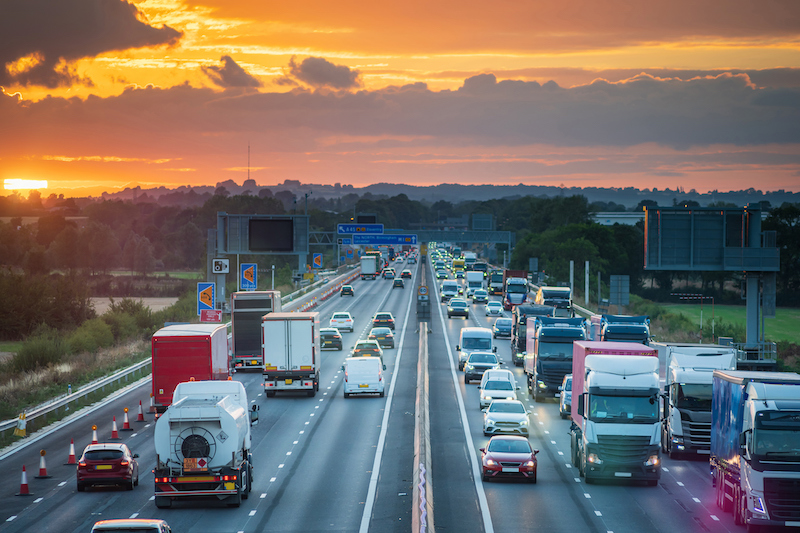
2 Comments
I used to be able to find good advice from your content.
I have learn a few good stuff here. Definitely price bookmarking for revisiting.
I surprise how much attempt you place to create one of these magnificent informative
web site.